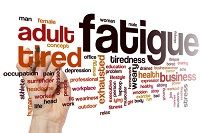Article
Depression, Not Lack of Sleep, Lowers Alertness
Author(s):
Being depressed or tired makes people less alert, but not sleepy, a Canadian study found. That means that sleepiness and poor alertness are not the same, and that doctors should not use the terms interchangeably.

A recent study found that sleepiness and poor alertness are not the same, and that symptoms of depression and fatigue impact alertness but not sleepiness. The study was conducted by Azmeh Shahid of the Sleep Research Laboratory in the Department of Psychiatry at the University of Toronto in Canada, and colleagues. It was published in the journal Nature and Science of Sleep in January 2016.
The researchers set out to “explore the relationship among alertness, sleepiness mood, and fatigue” and used the Toronto Hospital Alertness Test (THAT) scale to assess data from 60 healthy adults. THAT scores range from 0 to 50, and the average score for study participants was 34.9.
Researchers recruited 60 healthy control subjects, with 30 men and 30 women between the ages of 17 and 74. These were compared to 264 patient charts, with 142 of them women and 122 men. The patients were divided into “those with normal and impaired alertness” based on THAT scores. A “correlational analyses revealed that alertness was modestly, significantly, and negatively correlated with fatigue levels, depressive symptoms, and anxiety symptoms.”
The researchers noted, “daytime sleepiness and poor alertness are used interchangeably in the literature,” but the results of this study support the hypothesis “that daytime sleepiness is not the same as poor alertness.”
One issue is that there is no agreement on the definition of alertness, nor is there a “gold standard for the measurement of alertness.” There are many good reasons for such a definition and measurement tool to be developed, including the finding that “an association between fatigue and symptoms consistent with depression was noted.”
The researchers concluded, “The current study underscores that sleepiness and alertness are separate phenomena and not opposite poles of the same continuum.” There were, however, limitations to this study, including the use of questionnaire data, and the relatively small number of subjects. They suggest that future studies should investigate links between “impaired alertness and changes in sleep architectural variables in patients with sleep disorders,” as well as “the contribution of impaired alertness to neurovegetative symptoms in individuals with depressed mood.”





